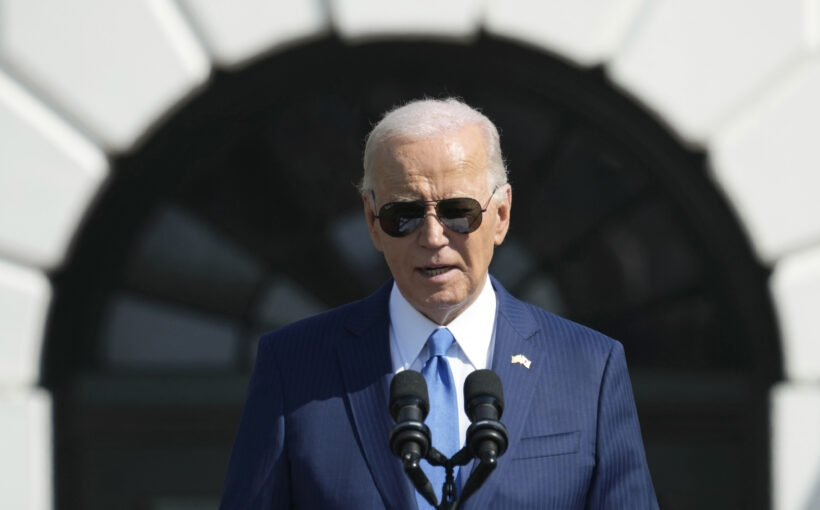President Joe Biden on Thursday condemned pro-Palestinian protests on college campuses that have turned violent or resulted in property destruction, emphasizing that Americans only have the right to protest as long as it remains peaceful.
“There is a right to protest,” Biden said, in his most extensive remarks since the campus protest movement began. “But there is not a right to cause chaos.”
The president, however, rejected the idea that the National Guard should be called in to quell some of the demonstrations at campuses across the country. And he rejected the suggestion that the protest movement might persuade him to change course in the Middle East, where Biden has remained largely supportive of Israel’s war in Gaza.
Biden’s remarks came more than two weeks since the pro-Palestinian student protests began. The movement has grown and intensified in the days since then, spreading to more than 100 campuses as students erected encampments and issued demands for colleges to divest from their ties to Israel. In several cases, college administrators have responded by calling in law enforcement to disperse the protesters, leading to intense confrontations and even arrests.
In his speech, Biden acknowledged the demonstrations are part of a long history of Americans exercising a right to free speech and assembly that he called “American fundamental principles.” But he insisted the protests must stay within the law, in a nod to the decision by protesters at Columbia University to occupy one of the school’s buildings.
“Destroying property is not a peaceful protest, it’s against the law,” Biden said. “Vandalism, trespassing, breaking windows, shutting down campuses, forcing the cancellation of classes and graduation, none of this is a peaceful protest.”
The White House until now had largely sought to steer clear of any significant involvement with the protests, contending they amounted to individual situations for college administrators to handle. Yet campuses across the country have become the site of chaotic scenes in recent days, amplifying pressure on Biden to take a more public role.
At Columbia, protesters occupied a university building, prompting the school to authorize police to enter it and conduct mass arrests. The arrival of counter-protesters at UCLA sparked violent late-night clashes with a pro-Palestinian group that had barricaded itself on campus. And in Texas, Missouri and elsewhere, viral clips showing the arrests of journalists and college professors have heightened scrutiny of police officers’ use of force.
The White House, in the meantime, has conducted little visible outreach to university administrators, nor weighed in on frustrations with the war in Gaza that is fueling the protests. Though second gentleman Doug Emhoff spoke privately with a pair of Jewish community leaders at Columbia last week, the discussion was limited to combating antisemitism on campus.
During his remarks, Biden offered his own rebuke of the antisemitic episodes that have occurred alongside the protests, asserting that “there should be no place on any campus, no place in America, for antisemitism or threats of violence against Jewish students.”
“Dissent must never lead to disorder or denying the rights to others, so students can finish a semester and their college education,” Biden added. “It’s basically a matter of fairness, it’s a matter of what’s right.”


